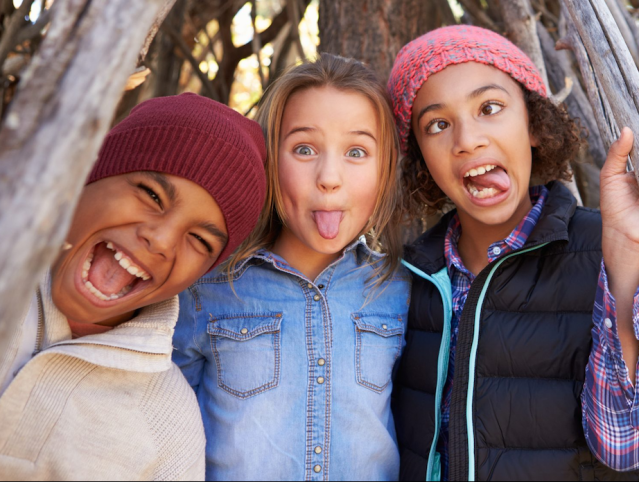When children went back to school this fall, the signs of substantial academic learning loss were already there. As a parent, I saw this with my own kids and their friends in their class. Her class spent substantial time on relearning letters and numbers, trying to catch back up to where a typical, non-pandemic kinder should be. And I’m sure you agree, the teachers are crushing it! They heard the S.O.S call of academic learning loss from last year and stepped up to the challenge. We as parents look to teachers as the experts in leading our children and supporting them in their academic learning—they are academic Jedi Masters. However, academic learning loss is not all that kids are struggling with.
As most of you have probably noticed with your own children, our youth are suffering emotionally, mentally and socially. All that time spent apart from their peers has resulted in significant social-emotional learning loss. While our teachers are trying to help our kids thrive academically, they cannot also help them thrive socially, emotionally, and mentally—though that is what is expected of them. We cannot expect someone to give 110% in multiple areas. When we spread ourselves too thin, we are barely surviving. And that is the position our kids are in right now. So what are we to do?
Just like we expect teachers to be the experts in academic learning, we have to turn to the experts in social-emotional learning: Traditional Summer Camps.
Traditional Summer Camps, like Tumbleweed Day Camp, have been the experts in social-emotional learn for over a century. Our complete essence is built on creating small, intense communities every summer or sometimes every week. In order to build these communities, we have gotten really good a supporting social and emotional growth in our campers, focusing specifically on relationship building, mindfulness and being self-aware, curiosity, and optimism. The social-emotional learning (SEL) that happens at camp is not only key to addressing the mental health crises we are seeing across the country, it is also necessary to help our kids with their academic learning as well. Traditional summer camps help our children move from barely surviving in school, to thriving in life, and more importantly, being happy. Taking a look at how the experts at summer camps utilize these SEL tools will help you pick the best program for your child this summer.
Relationship Building
Relationship building is a fancy way for saying MAKING FRIENDS! Experts at summer camps know how critical relationship building is in become successful, happy humans. Making friends and learning how to positively interact with other people involves many elements of SEL: communication, collaboration, civil disagreement, being a leader and learning how to be a good partner. When looking for a camp for this summer, making friends and building relationships should be the number one program focus of any expert-run establishment. When children feel connected and confident in their ability to make and sustain friendships, their anxiety and depression become lower and their self-esteem rises, trickling into all areas of their life.
Mindfulness & Being Self-Aware
Tons of research has been devoted to the positive effects of being present, or mindful, and those skills are critical in helping kids thrive in life. All great summer camp programs give kids time to explore nature, daydream, and live creatively. Camps whose programs offer space and time for mindful play and lessons in being present should be at the top of your list when choosing a camp. When camps devote time and space to being more present, they are also providing opportunities for campers to practice being self-aware. Summer camps have the flexibility and a higher camper-to-staff ratio that enables us to take time to talk to kids about how they are feeling. Summer camps like Tumbleweed intentionally take time to work with campers on being self-aware, because the more we talk about how our emotions work, the better we are at controlling them and being the masters of our own happiness.
Curiosity
Curiosity is the key element in life-long learning. Since our schools have to focus so much energy on catching students up with their academic learning, there is not a lot of time that can be spent on wondering, experimenting, or being curious just for the sake of finding out something new. That’s where summer camp experts come in! Whether it’s going on a scavenger hunt or experimenting for the first time on the rock wall, camp is filled with opportunities to be curious. Giving campers opportunities to be curious helps them practice setting expectations, succeeding and failing, and most importantly building optimism.
Optimism
Optimism is one of the single most important skills used to fight anxiety and depression. When you have something to look forward to, you are less likely to feel hopeless and alone. One of the things that makes summer camp so special is that we build up to many moments, including the first day of camp. The simple act of choosing a great summer camp for your child and putting it on the calendar can change the way they see the rest of the semester. It is the light at the end of the tunnel. Now, great camps are able to build this optimism because they create meaningful moments and intentional programs that help support social-emotional learning. They create something to be optimistic about! Having those experiences and practicing optimism at camp with social-emotional experts give kids the skills needed to intrinsically do that during the school year.
Life has not been easy for anyone these past few years, but our children have been impacted more than others. Let’s help set them up for success and get them the experts they need to support their social, mental, and emotional learning. Our children are on the right path to survive whatever comes next, and by sending them to a traditional summer camp this year, you can help them move from surviving to thriving.
